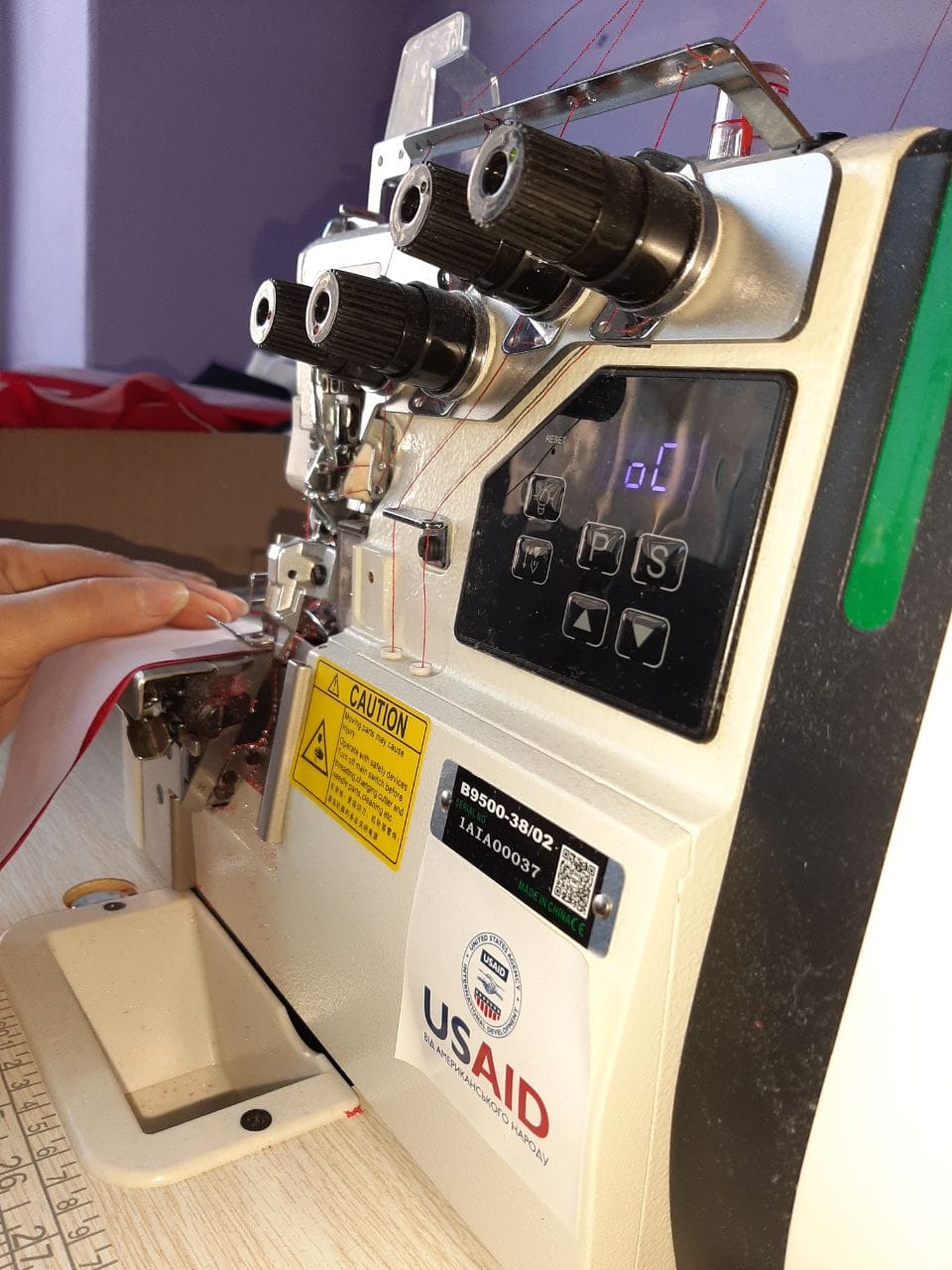In the spring of 2022, Dmytro Kosilkyn, an entrepreneur from the Luhansk Oblast, moved his garment production to Dnipro. This year, he received a grant from the USAID Economic Resilience Activity (USAID ERA) to purchase new, high-performance industrial equipment consisting of 15 different sewing machines and associated parts. Since 2015, the Kosilkyn family from their base in Lysychansk, Luhansk Oblast have been making children’s outerwear and hats from natural materials under their family brand – Be Easy. However, with Russia’s full scale invasion of Ukraine, Kosilkyn was forced to move to the safer region of Dnipro.
In Dnipro, he rented production space, set up his equipment, and resumed production. He restarted his business by making raincoats as needed by the military, but all this time he dreamed of returning to what he had been doing – making quality clothing for children. Step by step, he began making children’s jackets and overalls again.
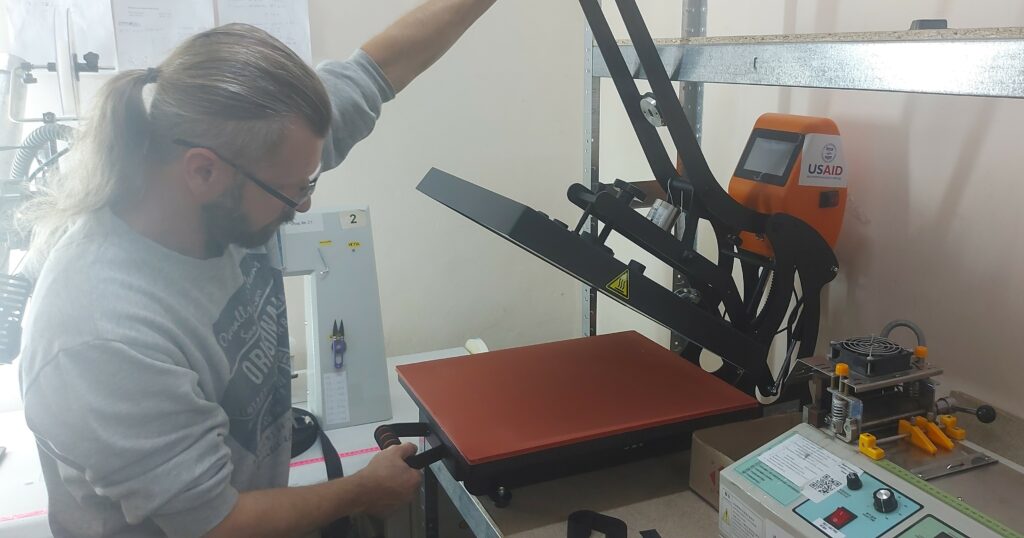

However, Dmytro needed new equipment to increase production and expand his product line. As he did not have enough working capital to buy it, he applied for and successfuly obtained a USAID ERA grant. The new equipment purchased with the grant funds was delivered between July and September this year. The equipment includes an industrial laser machine, three overlock sewing machines, a tacking machine with a button sewing clamp kit, a flatlock sewing machine, a pattern sewing machine, a buttonhole machine, three single-needle lockstitch machines, a cover stitch machine, an industrial lockstitch machine, a heat press, a steam generator, console and rectangular ironing tables, and a diesel generator.
Five people are currently learning to operate this machinery. The equipment has made it possible to automate the process of cutting material with an automatic laser cutter and improve the quality of finished products by using automatic needle-feed sewing machines, overlock machines, and a heat press. As a result, the team has reduced the time needed to sew some garments by 25% and increased the number of orders processed per working hour.
They also have a new automated production process – printing on fabrics and garments. The printing equipment is in place and has already been used to print an outsourced order. Now, Kosilkyn is working on a new spring collection of clothes and will use this printer to print some elements to make the clothes more attractive.
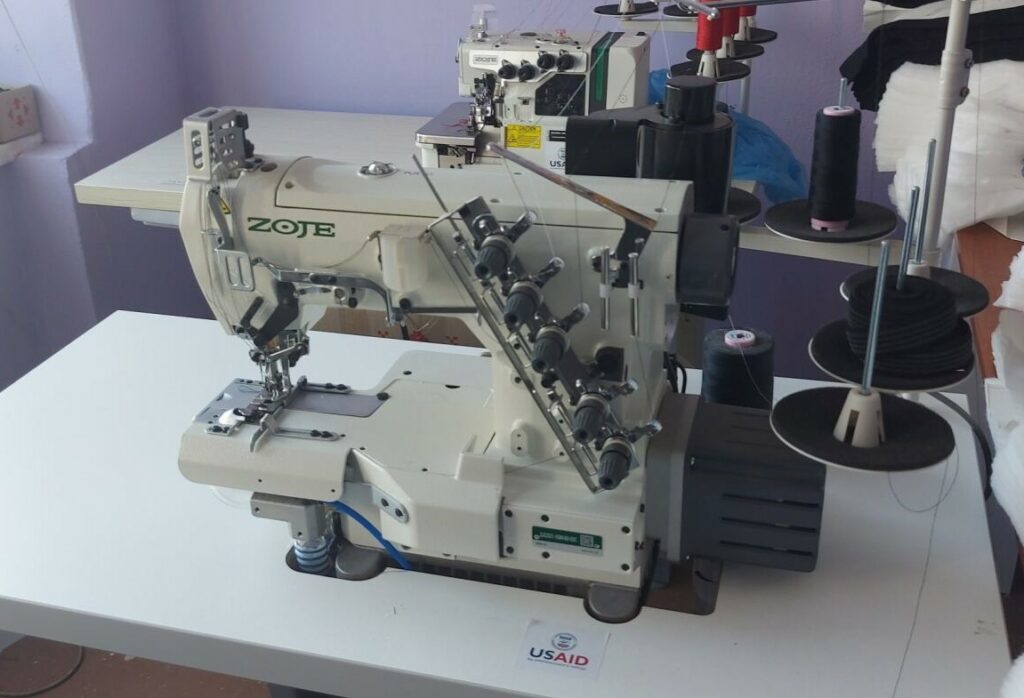
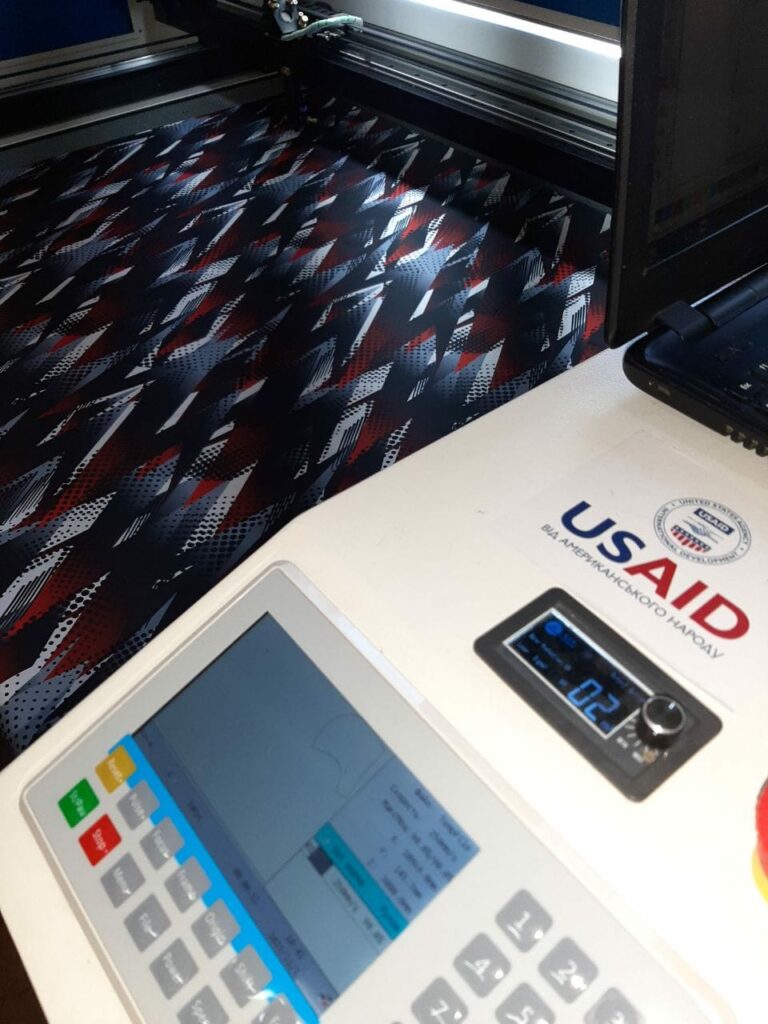
When the planned new staff are hired, Kosilkyn and three other employees will undertake a study tour to Progress Service in Lviv, a leader in the Ukrainian market in the production of high-quality and affordable shoes, as he wants to learn from them and to implement similar lean manufacturing methods.
“When we lived in our hometown, Lysychansk, we implemented most of the desired lean production practices. We are returning to these practices now and will implement them in our work with the new team,” says Kosilkyn.
Meanwhile, the entrepreneur is already introducing innovations in his production – he has created ‘cells’ that allow one worker to perform several operations on different equipment in sequence. This increases labor efficiency. The embedded quality standard – don’t accept, don’t make, and don’t pass on defects – helps to reduce control over production and strengthen the team-based approach.
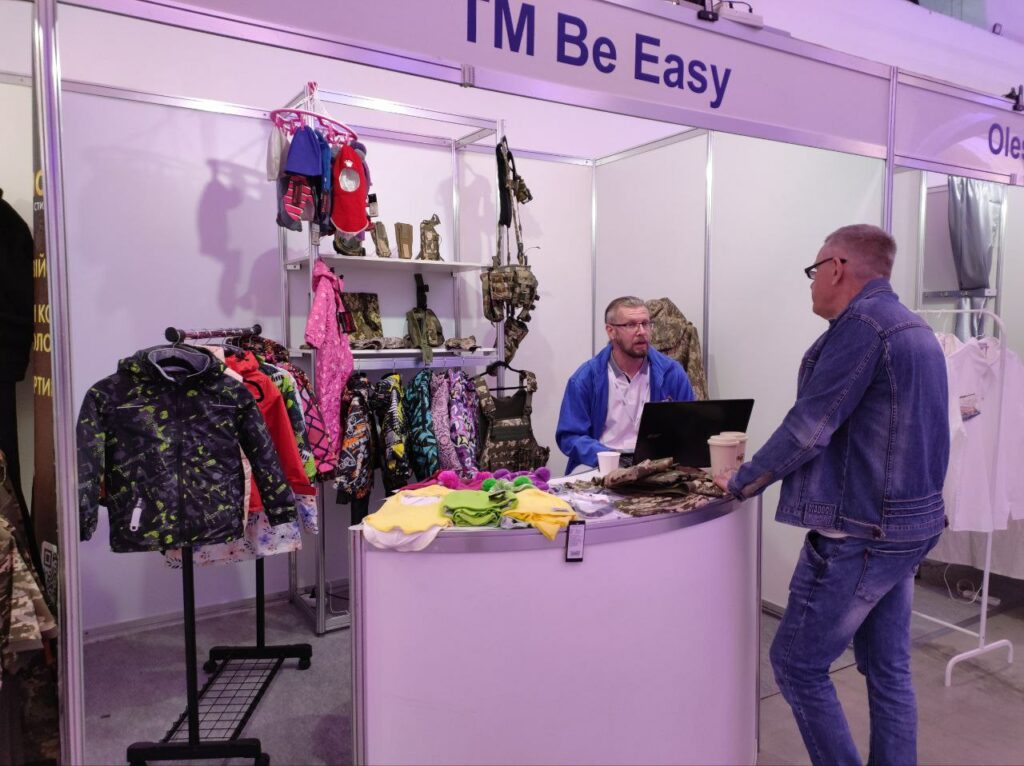
Kosilkyn has received orders to sew cosmetic bags and handbags for humanitarian kits, signal vests for the Red Cross, and patriotic T-shirts. He also makes clothes for the Bambi brand, is negotiating with the Modnyi Karapuz brand, and has agreements to make clothes for the Pobedov brand – which are all Ukrainian brands.
Among the challenges he has had to deal with include the lack of personnel, as skilled workers require much higher wages than he can afford, and so he hasdecided to train people on the job. He also plans to develop a line of thermal underwear and work with sportswear manufacturers to outsource orders. All these initiatives will help the Kosilkyn family business increase sales, create new jobs, and become more competitive in the Ukrainian market.
